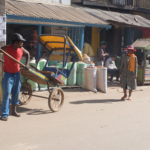
TIA. We first heard this phrase at our 2017 starting point in Madagascar, and then repeatedly in other parts of Africa. Typically, local people used the phrase by way of an explanation when something failed to work, or to explain delays and inconveniences.
The phrase was usually accompanied by a bit of a shrug and self-deprecating tone, and it carried – to our ears – a load of meaning.

At its most obvious, the phrase defines a wry acceptance of all the typical impossibilities of life in Africa, whether it’s the quality of the roads, the inadequacy and unreliability of the transports, the petty briberies, the mishaps of service, the failures of electric power, the cut-off of water, or any of the other side effects of paltry resources or mismanagement.
It also establishes a defensive pose, a way to deflect criticism or disapproval by those from outside Africa accustomed to their own ideas of more or better.
And yes, it’s an excuse for not trying to change, for accepting things the way they are. Some roads we took to tourist destinations through villages were in sorry shape, and we kept wondering why the villages didn’t organize some kind of maintenance effort to ease the flow of commercial truck traffic and tourist money through the town.
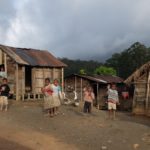
One reason for this acceptance is cultural. Every African country we have visited has another parallel phrase that encapsulates its response to TIA difficulties. In Malagasy (Madagascar), the phrase is “mora mora” – slowly, slowly; in Swahili, it’s “pole pole” and in Chichewa (Malawi) it’s “pang’ono pang’ono”. Nothing needs to happen quickly here, the words explain, so don’t stress out. Another usage is about taking care to do something right and avoid injury, as we would say, “be careful!”
Despite some burgeoning cities, most African countries are largely agricultural, tuned still to the slow rhythm of the seasons or to the importance of social bonding in their communities. They can do without western notions of maximizing the use of time, or changing society too fast. For visitors, that means, don’t expect anything to happen quickly.
So we found that adjusting our expectations a bit about how things should work gave TIA an entirely different meaning – one that speaks to the satisfactions and strengths of the people as well as their cultures, whatever mess the leaders sometimes make of them.
For us, here were some features of TIA, This is Africa…
On time arrival
We found our travels happened mostly on time, within the limits of traffic congestion, bad roads, road blockages due to market clogs or police stops, and so on. Our guides or drivers knew how long it would take to go from A to B, and we just found ways to keep busy during those times…even when 100 kilometers (60 miles) took a few hours. The worst of these roads are dubbed free African massage, though the bumping and rocking they provide develops more muscle pain than relaxation. It’s a TIA thing. The best of these roads are a pleasure to drive.
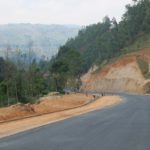
And new roads are coming in. We zipped along on many of them in Rwanda, as well as Malawi and Madagascar, including a brand new one still being finished along the lengthy Rwandan coastline of Lake Kivu. That one was interesting for another phenomenon, the presence of Chinese talent and Chinese investment in Africa. We had heard of lots of infrastructure building (road, rail, etc.), resource development for export, and so on – all coming from the Chinese. Here we saw it in action, with huge construction vehicles blazoning Chinese script. Apparently, most of the labor for the road-building is local, but the engineering and project management uses Chinese expertise. China, it is rumored, has assigned each of its provinces to attend to a different African country. Here, we see the future
To the stars
We were surprised a bit by how many high class hotels a tourist could choose in African countries, generally receiving earnest if not always spot-on service. To us, the so-called three star places, especially the community based ones, often outclassed the fancier hotels. Some people may like the monster rooms and the white table cloths and the luxurious sheets, but we found the personal and attentive service of these other hotels more than compensated. And In Madagascar, oddly, the bathrooms were as large as the living space. Our hotels often made special meals for us vegetarians. They cooked what we bought at the local markets. They adjusted to our needs, such as starting breakfast early when we had to depart at dawn. And much more.
Tres charmant
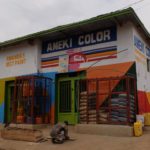
Every country we have visited in Africa has seen enough economic progress in the last few decades that its big cities offer pleasant neighborhoods for the burgeoning middle class, as well as green spaces and bits of colonial history.
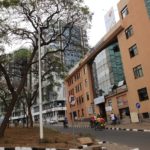
Kigali, Rwanda is a hilly haven for the most part; Blantyre, Malawi has colonial jewels and commercial bustle; Antananarivo, Madagascar offers hilltop estates and sleek new malls out north. They have not removed poverty and shabbiness from those cities. Yet we were delighted again and again by the preponderance of hand-painted store fronts, whose remarkably executed logos and sharp colors brightened up city streets. Nor have the countries moved far from subsistence agricultural living. But the future seems to be happening already.
And then there are native strengths we like to think of as TIA…
Hard work
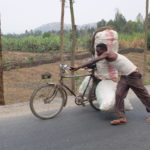
It is astonishing how hard people work, beyond just the tough labor of local farming. We have seen women carrying loads of water, as well as timber or other goods on their heads to sell at market, even while hefting a baby on their backs. We have seen men transporting enormous loads of charcoal, sticks, water containers, potatoes,yams, cassava, sorghum and other crops up steep hills with makeshift carts and bicycles. We have seen villagers walking dozens of miles just to shop or sell at the nearest open air market. During the dry season, it’s true, we’ve seen many people lounging about in the villages, but this is the equivalent of holidays. As the rains and planting season approach, all mobilize.
Good food
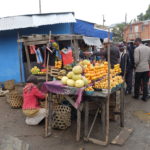
Pass through large city markets, by small village stalls or mats, and past stray lonesome stands along the road, and you will find a plenitude of fresh fruits and vegetables, appropriate to the changing seasons. We are convinced that the average African eats much more healthily than the average westerner now, though processed foods and sugar drinks have begun their siren song here also.
Multi-lingual abilities

You can hardly live in Africa without mastering several African languages, even in small countries. And then there’s French or Portuguese or English for their former colonies, as well as English learned as the language of success and achievement. This mental adeptness, akin to what residents or India experience, has been shown through research to build thinking and performance capabilities well suited to the modern world.
We had the chance to visit the American Association of future tour guides in a small town of western Madagascar. Each knew Malagasy and English, after some intensive study, as well as the skills needed to accommodate the tourists likely to head to the country in the future.
Style
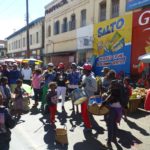
There are plenty of western influences, of course, but the vivid music, dress, and best of all cordiality are native to African countries. As pale outsiders, we feel more welcome, safer and respected than any foreigner in a western country might feel. And with bright colors or sounding drums.
Communal life
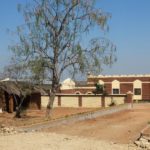
The women gather to tend hair, cook, collect water and any number of other domestic tasks. The men socialize over beer and football and village business, along with individual and collective labor for the fundamental needs of planting and harvesting. They all feel deeply connected to those around them, whether those people are still in the villages or earning money in the big cities. Those locals we met who had moved for work to a large city still talked proudly of their families and confirmed the ties they felt to their home villages. In Malawi, our driver arranged to say hello to his proud mother and sister when we passed his home village.
This social ideal overrides any religious differences, as Muslims and Christians work harmoniously alongside each other. Some districts we passed through were heavily Muslim, others heavily Christian, but there was significant overlap. Wherever we found a sizable mosque within a small village, nearby would be a CCAP, Adventist or Catholic church. The people’s lives and work unite them more than mere religion separates them.
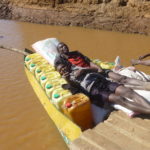
Mora mora
Life, as the seasons tell us, alternates hard work and time for enjoyment. The people of African countries understand that slow rhythm in their hearts and souls. Take it easy, don’t stress about things…the land endures, the seasons change, and our community continues. What’s the rush?
—–
So, yes, there are lots of impediments to progress in Africa and plenty of problems. But we now understand that there is no reason for TIA to be an apology. TIA is what makes the continent strong.
(Also, for more pictures from the African countries we visited in 2017, select the name of a country from the “Itineraries and Pictures” menu at the top. You can then view the slideshow at the end of the selected page.)


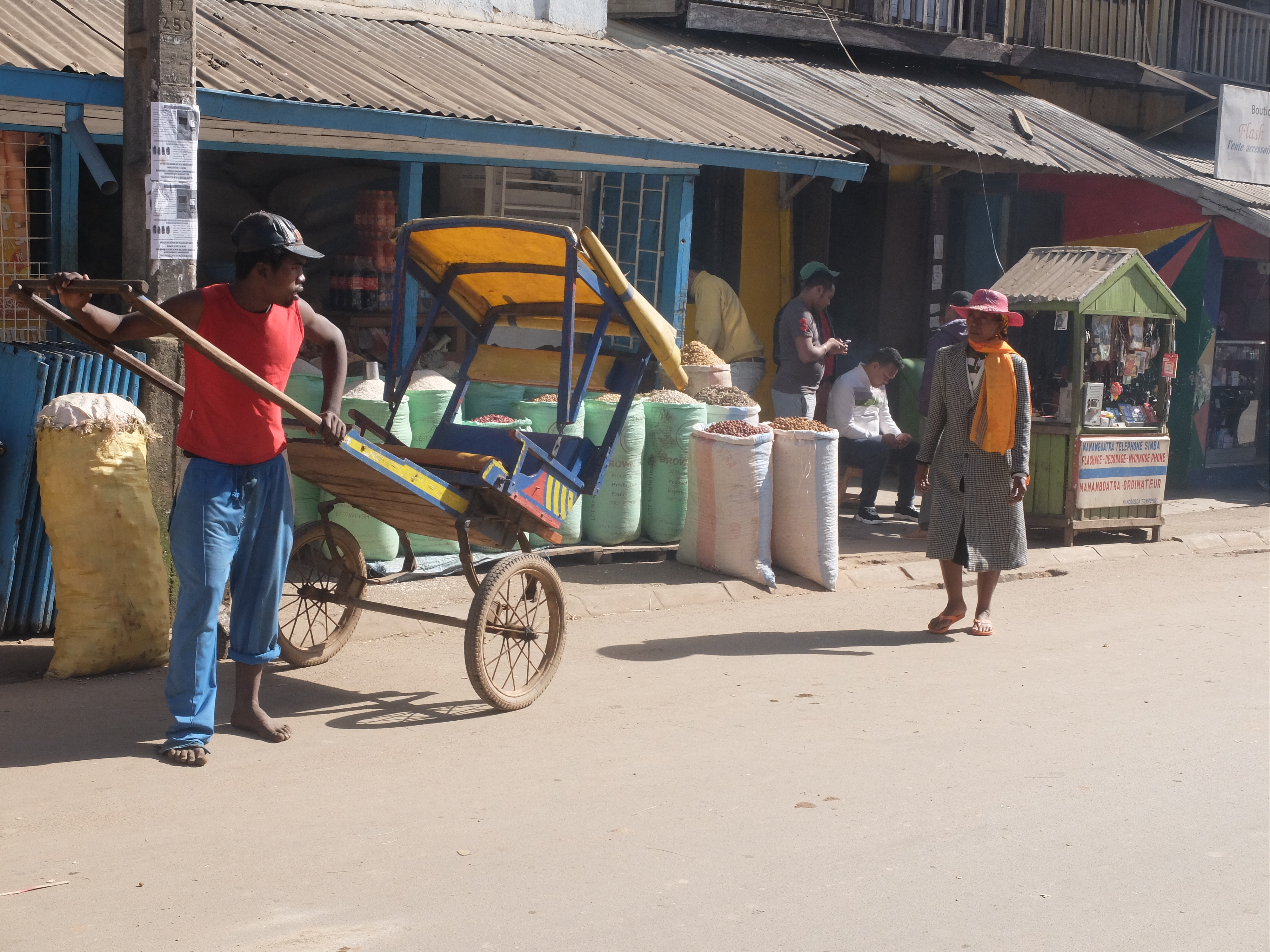
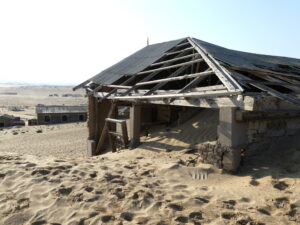
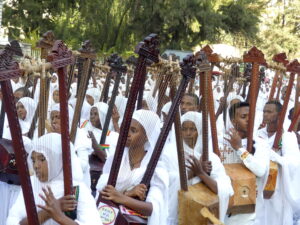
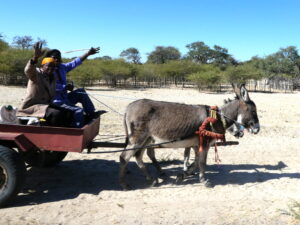

Your empathetic observations are much more informative than the usual “colourful” reports. The fascinating photos which accompany your travel reports encapsulate the beauty and character of each location. I hope that you gain the wide audience that you deserve.
Thank you for your kind and appreciative words. Sometimes we seem to have little time to look at our pics, let alone write about what we see. But then again, we are fortunate to have that challenge.
Before I went to Uganda, my Ugandan friend in the US told me to expect to live on “Africa Time” while there. I love your travelogues and look forward to many more.
Your friend was right, in part, as one does have to adjust expectations a bit. But the reality of African countries is so much more splendid than that adjustment implies. No place wants for imperfections, but if you embrace the culture and its special qualities in these countries, you gain so much.